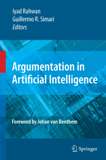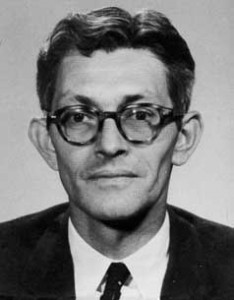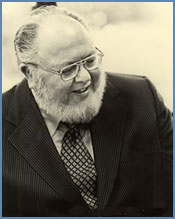The British Government has this week announced a secret inquiry into the invasion of Iraq in 2003. [UPDATE: The Government subsequently announced that the enquiry would not be held in secret.] How appropriate that a decision made in secret, with only scarce, belated and begrudging justification presented to the citizenry, should now be re-evaluated in secret. Even though today Gordon Brown says that the decision about secrecy is not his preference, he has delegated the decision about openness to the Chairman of the Inquiry. For this cowardice, Gordon Brown deserves the widespread contempt in which he is held.
On 14 February 2003, annoyed that the major public policy decision to invade Iraq had apparently already been made, and made in secret without due public consultation, I asked myself if such secrecy could ever be justified. The text below is what I wrote then. The existential wackawacka hunakuna about weapons of mass destruction since the invasion alters my arguments below not a jot.
In order to avoid re-appearance of comments I received in 2003, let me repeat that I make below no case about the worth of the invasion itself, neither for nor against the invasion. My case, is as the title says, a case for a justification for a claim, to be presented in public and subject to contestation and debate. If we’d had such a debate BEFORE the decision to invade had been made (ie, before July 2002) we would have either ended up with no invasion of Iraq at all, or one which many more citizens could have supported.
The Case for the Case for War
14 February 2003
The strange public debate we in the West have been having these last few months about whether and how to undertake military action against Iraq has led me to reflect on the role of argument in public life, especially as it concerns the making of major public policy decisions. While I have strong views on the substantive issues involved here, I am trying not to let them be apparent in my discussion this month of the decision-making processes involved. In particular, in this column, I am not putting the case for military action against Iraq at this time, and nor am I putting the case against such action. This column has no view on the matter. My argument is about the use of argument in decision-making in this domain.
1. The debate has been strange because of the refusal, until recently, of the main proponents of military action against Iraq (which action I’ll call simply “war”) to defend their claim publicly. Only last week, 6 months or so after public debate on this issue began, did the British Prime Minister Tony Blair, meet and debate the issue with ordinary people. Only last week, did the US Government present its intelligence evidence publicly to the UN. Only the week before did the UK Government release a document outlining its case (a document, it turned out, that was mostly plagiarised from public sources). As far as I’m aware, the Australian Prime Minister, John Howard, has still not provided reasons publicly for his Government’s policy of uncritical support for the US position, a refusal which led to him being censured by a majority vote of No Confidence in the Australian Senate, the first such in its history. In Britain, the authorities which operate the House of Commons have recently refused to permit a debate in the House on the question.
2. Why is this? Why have the main protagonists been unable and/or unwilling to defend their position, on an issue of such manifest importance? After all, every bar and every cafe the length of Britain (and elsewhere, if TV news reports here are any guide) is filled with ordinary people discussing the proposed war, so it is not as if people are uninterested in the question.
3. So, I asked myself: What would be good reasons for a Government not to give public justification for its desired action of war against Iraq? I thought of the following possible reasons for not giving reasons (in each case, as perceived by the proponents):
3.1 Revealing the case for war would endanger national security.
3.2 Revealing the case for war would place at peril the lives of, or in other ways compromise, intelligence sources.
3.3 The case for war is weak. For example, this would be the situation if the evidence for Iraq having weapons of mass destruction is only circumstantial.
3.4 The case for war dishonours the proponents. This would be the situation, for example, if the reasons for war were: “To capture Iraq’s oil”, or “To avenge the attempted assassination of George Bush senior.”
3.5 There is no need to put a case for war. In Britain, for example, it seems, as the Defence Secretary reminded us all last week, that the Government can engage in foreign wars simply by convincing the Queen to sign the relevant order; there are no legal or constitutional requirements to convince the House of Commons, or Parliament, or the public at large. I imagine the US War Powers Act, which requires the support of Congress before the President can declare war, may limit the US administration’s freedom somewhat more.
3.6 The case for war is so complex that the public would not understand it.
3.7 The proponents do not respect the other parties in the debate (those opposed to the war, and those still undecided), and so are not bothered to put the case to those others. Many Australians appear to believe that this is the attitude of the Australian Prime Minister on this issue.
To me, speaking personally, reasons 3.1 and 3.2 would be a compelling justification for not revealing the case for war, but I don’t recall any of the proponents giving these as their reasons. None of the other reasons would be compelling to me as reasons for not engaging in public argument on this issue.
4. So, I then asked myself: How would I persuade the proponents of war to give us, the citizenry, their reasons for their proposed actions. Again, I thought of several reasons for giving reasons for war:
4.1 Failure to put any case at all leads people to suspect that the real case is weak or dishonourable. One might call this the Baskerville Argument for giving reasons: If the dogs don’t bark, then why are they silent?
4.2 Engagement in argument enables each side to strengthen their case: to learn of the possible attacks against it, to identify defences and counter-attacks for these, and so to bolster the arguments. The outcome of any comprehensive public debate should be a stronger case for war.
4.3 For complex public policy decisions, such as this one, there are usually many alternative action-options, and many and diverse implications and consequences of those options. In fact, the complexity may be such that no one person, or even no single team of people, could adequately hope to assess and comprehend all these. (This is especially the case for teams of politicians and bureaucrats, out of touch with ordinary reality, as the group think of the CIA in the Bay Of Pigs incident showed.) Only by allowing a full public debate before a decision is made can society be certain that all the relevant issues have been raised and have informed the decision, and thus that the best action-option has been chosen.
4.4 Military action is an example of a public policy decision where ultimate success or failure may depend greatly on the quality of execution, as much as on the particular action-option selected. This in turn may depend on the morale of the military personnel undertaking the action, which in turn may depend on the extent of public support those military personnel have. Without public support for a particular military action, it is much less likely to be successful, at least in a democracy. (I believe this argument is part of the so-called Powell Doctrine, formulated by the US Secretary of State when he was Chairman of the Joint Chiefs of the Defense Forces Staff under US Presidents Bush snr. and Clinton.)
But public support depends crucially on public acceptance of the final decision made, and this in turn depends on the public believing that they have played a part in the decision process. Public debate is necessary, therefore, to establish and sustain public involvement in the decision-making process. People may support a decision outcome even when they disagree with it, if they believe they played an appropriate part in the decision-making process. (I believe this is is real lesson of the experience of the US and Australia in Vietnam: not that the decision to wage war in Vietnam was inherently wrong — it may or may not have been wrong — but rather that the public did not feel they had been sufficiently consulted before it was made, or sufficiently consulted as the military involvement increased. Thus, they did not support it.) Prior and ongoing public debate, rather than being a hindrance to execution quality, may therefore increase execution quality, and may in fact be essential to the ultimate success of the military action itself.
4.5 In a democracy, failure to justify and persuade the citizenry of the wisdom of some major policy is ultimately a mistaken strategy, electorally.
4.6 On important public policy issues in a democracy, consensus is unlikely if not impossible. It is therefore crucial to channel disagreement into public argument and debate, in order to prevent recourse to other forms of expression of opinion, such as mass protests and acts of violence. Public argument thus acts as a “safety valve”.
4.7 In a democracy, politicians have a duty to explain their proposed actions to the citizenry who pay their salaries.
5. Reasons 4.1 – 4.6 are instrumental: they are attempts to show that providing public reasons for war will behoove the proponents of war, and/or improve the quality of decision-making and decision-execution. Reason 4.7 is a moral claim.
6. Some of the arguments listed in Section 4 are not new. For example, argument 4.3 about deliberative processes improving the quality of decision outcomes was made by D. J. Fiorini in 1989, and, in a different form, by Bill Rehg in 2001:
D. J. Fiorino [1989]: “Environmental risk and democratic process: a critical review.” Columbia Journal of Environmental Law, 14: 501-547.
W. Rehg [2001]: “The argumentation theorist in deliberative democracy.” Keynote address to the Conference of the International Debate Education Association (IDEA), Prague, October 2001. Revised version published in Controversia, 1(1): 18-42 (2002).
Similarly, James McBurney and Glen Mills, briefly argued a case similar to my argument 4.6, in:
James H. McBurney and Glen Mills [1964]: Argumentation and Debate: Techniques of a Free Society. New York, USA: Macmillan, Second edition.
Moreover, my argument 4.4 may be a valid inference from the Powell doctrine, as I suggest above.
7. However, these works are all primarily concerned with other issues, and do not aim to present an argument for public argument over matters of importance. Does anyone know of papers or books which do put such a case?
Postscript 1 (added 17 February 2003): The British Prime Minister, Tony Blair, has just presented a detailed case for taking military action against Iraq, in a speech to the British Labour Party in Glasgow two days ago. I believe this was his first extended public presentation of his arguments for military action; the speech was given on the same day that a million people marched in central London against any war in Iraq. The British House of Commons has still not been permitted to debate the matter.
Postscript 2 (added 17 February 2003): British political commentator, Andrew Rawnsley, wrote in his weekly column in The Observer yesterday:
“There are powerful arguments and there are dreadful arguments in favour of definitively dealing with the Iraqi tyrant, and it has been one of the failures of the British and American governments not to advance the better ones.” (Andrew Rawnsley: “It’s do or die, Prime Minister”, The Observer, 16 February 2003.)
Postscript 3 (added 17 February 2003): From an editorial today in The Guardian, a British daily newspaper:
“In fact, the public is wary of the power of argument because it is attenuated, circumscribed and distorted by political calculations. This may explain why many suspected the government of trying to scare people into war when tanks were placed near airports. The temper of these times is to distrust more than trust.” (“The march of history: A moment of truth for British politics”, The Guardian, 17 February 2003.)
Postscript 4 (added 26 February 2003): Finally, the British House of Commons is permitted to debate this issue. Here is Tony Blair’s statement to the House yesterday.
Postscript 5 (added 12 April 2003): Playwright David Hare is unable still – after three weeks of fighting and the capture of Baghdad – to determine the reasons for the war.
Postscript 6 (added 8 May 2003): At last, an argument I can understand decision-makers in the US and British Governments may have found was compelling: that, although the probability that the Iraqi regime had links with Islamic fundamentalist terrorists may not be large, the consequences of such links may be catastrophic. See the article by Jeffrey Goldberg, “The Unknown: The C.I.A. and the Pentagon take another look at Al Qaeda and Iraq” in The New Yorker magazine, published 10 February 2003. Why did the decision-makers not trust us citizens enough to share such analyses?
Postscript 7 (added 21 June 2003): Author and publisher Jason Epstein, writing in The New York Review of Books, May 1, 2003, in an article entitled “Leviathan” (pp. 13-14), said this about the Second Iraq War:
Meanwhile, Americans are sharply divided over a preemptive assualt whose urgency has not been adequately explained and for which no satisfactory explanation, beyond the zealotry of its sponsors, may exist. (page 13)
Postscript 8 (added 14 September 2003): The Observer’s superb political journalist, Andrew Rawnsley, argues in his column today that Tony Blair “didn’t trust the British people to follow the moral argument for dealing with Saddam. This mistrust in them they now reciprocate back to him. For that, Tony Blair has only himself to blame.”
Postscript 9 (added 28 November 2003): Thomas Powers, in an article entitled “The Vanishing Case for War”, in The New York Review of Books, 50(19): 12-17, 4 December 2003, says this (p. 12):
“The invasion and conquest of Iraq by the United States last spring was the result of what is probably the least ambiguous case of the misreading of secret intelligence information in American history. Whether it is even possible that a misreading so profound could yet be in some sense “a mistake” is a question to which I shall return. Going to war was not something we were forced to do and it certainly was not something we were asked to do. It was something we elected to do for reasons that have still not been fully explained.The official argument for war, pressed in numerous speeches by President Bush and others, failed to convince most of the world that war against Iraq was necessary and just; it failed to soften the opposition to war by longtime allies like France and Germany; and it failed to persuade even a simple majority of the Security Council to vote for war despite immense pressure from Washington. The President’s argument was accepted only by the United States Congress, which voted to give him blanket authority to attack Iraq, and then kept silent during the worldwide debate that followed. The entire process – from the moment it became unmistakably clear that the President had decided to go to war in August 2002, until his announcement on May 1 that “major combat” was over – took about nine months, and it will stand for decades to come as an object lesson in secrecy and its hazards.”
Postscript 10 (added 5 April 2004): Richard A. Clarke in his book, Against All Enemies: Inside America’s War on Terror (New York: Free Press, 2004), lists (page 265) five rationales which have been attributed to senior Bush II Administration officials (GW Bush, D Cheney, D Rumsfeld and P Wolfowitz) for seeking a war against Iraq. I paraphrase these here:
To finish the Gulf War of 1991
To remove a hostile enemy of Israel
To create an Arab democracy as a model for other regional states, especially Egypt and Saudi Arabia
To remove a potentially hostile enemy of Saudi Arabia (and hence enable the withdrawal of US troops stationed there)
To create another friendly source of oil for the US, and so reduce dependency on Saudi oil.
Postscript 11 (added 15 August 2005): George Packer, in an article entitled “The Home Front: A soldier’s father wrestles with the ambiguities of Iraq” (The New Yorker, 4 July 2005, pp. 48-59) says this:
“In the fall of 2002, it still might have been possible for President Bush to construct an Iraq policy that united both parties and America’s democratic allies in defeating tyranny in Iraq. Such a policy, however, would have required the Administration to operate with flexibility and openness. The evidence on unconventional weapons would have had to be laid out without exaggeration or deception. The work of U.N. inspectors in Iraq would have had to be supported rather than undermined. Testimony to Congress would have had to be candid, not slippery. Administration officials who offered dissenting views or pessimistic forecasts would have had to be heard rather than silenced or fired. American citizens would have had to be treated as grownups, and not, as Bush’s chief of staff, Andrew Card, once suggested, as ten-year-olds.” (page 54).



